Archive
Sources Of Ferrari’s Article
What we have selected for our Wikipedia article is : Ferrari’s digital identity. One of the main causes for this election is the fact that apart from considering that Ferrari is one of the best driving companies, we also have got interest to know more about it, and to get closer to it.
We have to take into account the fact that digital identity is becoming more and more important but also controversial nowadays. We surely don’t know in what places can we find sources that are really reliable. The thing is: what is reliability? What makes and article reliable (and “good” at the same time)?
For me, reliability means the following: it’s related to what is true and something that we can believe on, in this case, in a digital sense.
We can find official sources and non official ones, although the official ones are obviously more reliable, or at least considered more reliable. In adition, there’re also other web pages, like Ferrari.com, Ferrari Club or Youtube that also give us information about Ferrari.
We have make use of most type of sources, mainly, blogs, microblogs (twitter accounts), social networks, mainly Facebook, in this case different type of accounts can be found, for instance, Ferrari: http://www.facebook.com/Ferrari
Scuderia Ferrari: http://www.facebook.com/SFScuderiaFERRARI
Museo Ferrari: http://www.facebook.com/pages/Museo-Ferrari/218187911525591
Ferrari World Abu Dhabi: http://www.facebook.com/ferrariworldabudhabi
Scuderia Ferrari Club: http://www.facebook.com/pages/Scuderia-Ferrari-Club-The-Official-Ferrari-Passion/92006693347?sk=info.
Apart from that, Ferrary has also got a good place in Google+ and it’s mainly used for promoting Ferrary’s ultimate products.
As always, we haven’t forgotten about taking the opinion of experts into consideration, althoung it’s known that Ferrary is one of the “best” car branches and the cost it has says it all. Finally, we have also made used of some external links and references that has made it us easier to find a way to put all the information together and to come to an agreement.
Why the title of “A Clockwork orange”?
“A clockwork orange” is a well-known title of a book written by Anthony Burgess, in which was based the famous film with the same title made by Stanley Kubrick.
But everybody who have seen the film or have read the book knows that the title don´t coincide with the content in a literal way… So, what was the origin of the title? Exited a logical reason to put it?
The author of the book gave several explanations in order to clarify the questions above:
– First of all, the author explained that it was an ancient Cockney expression “to be as queer as a clockwork orange”, with means to be “so strange”.
– Another explanation was that the term “orange”, which means the orange fruit, come from the term orang, meaning “man”. According to this explanation, the meaning of the title will mean “The mechanic man”, making reference to the fact that a man can´t be programmed as a machine.
– The last explanation given was that the term mentioned before makes reference to a city where A. Burguess had lived years before the publication fo the novel.
In the essay “Clockwork Oranges”, A. Burgess asserts that “this title would be appropriate for a story about the application of Pavlovian or mechanical laws to an organism which, like a fruit, was capable of colour and sweetness”
REFERENCES:
- An article about some curiosities of the book and the film in “Tepasmas”: http://tepasmas.com/curiosidades/naranjam
- A blog about curiosities of titles of several books in “Papel en blanco”: http://www.papelenblanco.com/metacritica/el-extrano-origen-de-los-titulos-de-algunas-celebres-obras-de-la-literatura-universal
- The Wikipedia article for the book “A clockwork orange”: http://en.wikipedia.org/wiki/A_Clockwork_Orange
Espazioaren konkista Wikipedian jasoa
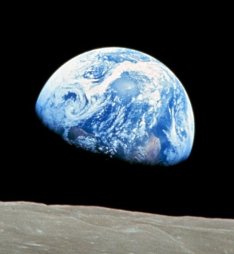
Ideologia antagonistak, espioiak, muga fisikoak, estatu kolpeak, gerrillak, bonba nuklearrak… XX. mendearen ezaugarriak jasotzen eta sintetizatzen dituen prozesu luzea eta interesgarria da Gerra Hotza. Gertakari historiko luze lez, historiako adar ezberdinak ikutzen ditu, hala nola, politika, ekonomia, zientzia eta teknologia . Ondorioz, gai honek eskeintzen duen zabaltasuna Wikipedian jasotzea erabaki dugu, dokumentazio egokiarekin eutsiz. Era berean, Wikipedian ageri den jatorrizko artikuluak izan dezakeen informazio falta edo hutsunea betetzea dugu helburutzat.
Lehenik eta behin, gaztelaniako jatorrizko artikuluaren informazioa irakurri genuen eta bere erreferentziak aztertu genituen. Informazioa Google Docs plataforman itzuli genuen. Informazioaren zati handia itzulita zegoela, tutoria izan genuen, eta, bertan, jada itzulita zegoen artikulua klaseko Deusto Littera Wikian sortu genuen sarrera berria eta bertan ekin genion lanari. Artikulua Wiki plataformara pasatzeko unean, atal ezberdinetan banatu informazioa: Sarrera, Aurrekari historikoak, Gerra Hotzeko testuingurua, Apolo programak, 12 astronautak, gastu ekonomikoak… Falta ziren atal horiek klaseko Wikian sortutako sarreran itzuli eta taldeko kideen artean landu genituen.
Artikulua burutzeko unean eguneroko lanari garrantzia eman diogu. Zatika egin dugu lana, pixkanaka-pixkanaka eguneroko ekarpenak eginez. Hori izan da gure artikuluaren luzeeraren gakoa. Era horretan, lehen aipatu diren adar ezberdinak garatu dira, hots, politika, ekonomia edota teknologiari buruz aritu gara.

Informazio hori aberasteko xedearekin, beste bibliografia bilatu genuen, adibidez, RIA Novosti agentzia errusiarraren artikuluak, NASAren orrialdeko informazioa, El Mundo egunkariko artikulua, Historiako testuliburuak… Behin artikulua prest zegoela, Wikipedian kontua sortu dugu eta bertan jarri dugu gure artikulua: Espazioko Lehia. Ondoren, argazki egokiak bilatu ditugu informazioari dimentsio bisuala emateko. Wikipedian egindako azken ekintza esteken eranstea izan da. Esan beharra dago termino batzuei buruz euskarazko Wikipediak dituen eskasiak gure lana zaildu duela.
Azkenik, gaiari buruzko informazio gehigarria bilatu dut, adibidez, Apolo 13aren inguruko dokumentala, taldean partekatu duguna. Oso lan interesgarria iruditu zait, gai honi buruzko ezaugarri berriak ikasi baititut. Era horretan, gaiarekiko interesa piztu da nigan eta esperientzia aberasgarria izan dela deritzot.
Erreferentziak:
– Wikipediako artikulua: http://eu.wikipedia.org/wiki/Espazioko_lasterketa
– Deustuko Littera Median egindako artikulua: http://wiki.littera.deusto.es/en/index.php/Infoman1112/Space_Race
Knowledge Management
 According to wikipedia Knowledge management (KM) comprises a range of strategies and practices used in an organization to identify, create, represent, distribute, and enable adoption of insights and experiences. Such insights and experiences comprise knowledge, either embodied in individuals or embedded in organizations as processes or practices.
According to wikipedia Knowledge management (KM) comprises a range of strategies and practices used in an organization to identify, create, represent, distribute, and enable adoption of insights and experiences. Such insights and experiences comprise knowledge, either embodied in individuals or embedded in organizations as processes or practices.
Bellinger, Gene says:
The value of Knowledge Management relates directly to the effectiveness with which the managed knowledge enables the members of the organization to deal with today’s situations and effectively envision and create their future.
There are some related topics to Knowledge Management as:
– Knowledge community
– Knowledge ecosystem
-Knowledge engineering
– Knowledge Management Software
As AIAI says these are Knowledge Management Frameworks:
The knowledge management framework we use was originally based on work by van der Spek and de Hoog. It covers
- identifying what knowledge assets a company possesses
- Where is the knowledge asset?
- What does it contain?
- What is its use?
- What form is it in?
- How accessible is it?
- analysing how the knowledge can add value
- What are the opportunities for using the knowledge asset?
- What would be the effect of its use?
- What are the current obstacles to its use?
- What would be its increased value to the company?
- specifying what actions are necessary to achieve better usability & added value
- How to plan the actions to use the knowledge asset?
- How to enact actions?
- How to monitor actions?
- reviewing the use of the knowledge to ensure added value
- Did the use of it produce the desired added value?
- How can the knowledge asset be maintained for this use?
References:
- Knowledge management. (2012, May 5). In Wikipedia, The Free Encyclopedia. Retrieved 21:35, May 8, 2012, from http://en.wikipedia.org/w/index.php?title=Knowledge_management&oldid=490802538
- Kowledge Management- Emerging Perspectives, Gene Bellinger http://www.systems-thinking.org/kmgmt/kmgmt.htm
- AIAI Knowledge Management. Retrieved on May 17, 2012 http://www.aiai.ed.ac.uk/~alm/kamlnks.html
Third Carlist war, our Wikipedia experience.
This term, as a part of the Information management subject, we were asked to do a Wikipedia article in gropus. We have chosen the third carlist war as the topic for our article, mainly because of two reasons: There was not nearly any information about this in the english wikipedia, and, as both of us are studying the degree of humanities, we thought it could be a good experience to show our knowledge in history.
This has not been a easy job, though; We have had to find lots of information in books, articles, blog posts, internet webpages…and then, as nearly all the information was in spanish, we have had to to translate all of it into english.
We have organized the article in 5 main parts: An introduction, a decription of the opposing ideals which took part in the conflict, the background of the war, the war, and its aftermath. Each main part is expanded in many other parts, so it is quite a complet article.
When other groups started uploading their articles from their wiki pages to the wikipedia and some of them had problems, as we were not sure of the aswer the article would have in that space, we got nervous, but as we uploaded and we watched the positive reaction it had, we realized that our article would not have problems there. The article is, in fact, an extension of the existing article, that, as I have metioned before, was very short and incomplete.
This has been a very grateful experience, as we have had the option for enhancing oru knowledge about how wikipedia works. The redaction of the project has also contribute to our knowledges on this important historical matter.
A french melody: Les Choristes
 Foreign films are generally produced on small budgets. They also succeed in frequently telling great stories. This is the case with a charming little 2004 French film called Les Choristes (The Chorus), in which our Wikipedia Article is focused on.
Foreign films are generally produced on small budgets. They also succeed in frequently telling great stories. This is the case with a charming little 2004 French film called Les Choristes (The Chorus), in which our Wikipedia Article is focused on.
Les Choristes is a post-World War II film of nostalgia, optimism and authenticity. This gentle drama, nominated for both an Academy Award and a Golden Globe Award, is from first-time French director Christophe Barratier. It features a music teacher named Clement Mathieu (Gerard Jugnot) who lands a job at a boys’ boarding school settled by delinquents and orphans. The school, run by a martinet headmaster (François Berléand), is a place for misfits and losers. Sensing potential in these exuberant boys Mathieu forms a choir to lead in his charges through the transforming power of song. He knows his actions will likely end his career but he presses on courageously.
Clement Mathieu demonstrates some of the greatest virtues: love, patience and self-discipline. The story is told from the perspective of two boys who are reunited many years after their time at the dreary boarding school. The opportunity to reflect on how their lives were changed by this one great teacher leads them to consider how powerful Mathieu’s influence really was in shaping their lives.
This is the formula used (with some variations) by many films about music teachers, such as Mr. Holland’s Opus, Music of the Heart, and non-music teachers, like To Sir With Love, Dangerous Minds, Stand and Deliver, Dead Poets Society.
Les Choristes is a charming story of hope infused with so much optimism and nostalgia. Genuine, heartwarming, and completely inspiring.
Wikipedia adventure
Wikipedia, The Free Encyclopedia, has been our territory of study during the last weeks. The main target was developing a complete article or improving and translating an already published one, that is to say, the objective was immersing ourselves in this deep and global ocean in which lots of information swim constantly. And, honestly, the aftermath has been pretty satisfactory.
In my groups´s case, our first approach to Wikipedia started with the enlargement of the Chinese and English publications about the film Spring Subway. Our next step was creating the Spanish, German, French and Basque version of this specific film and translating the containing information into the selected different languages. This proccess has suppossed quite an effort since we have tried to maintain the essence of the original text while adequating it to a natural passage in each version. Once the texts were entirely edited, we moved on to the next chapter: changing the articles to Wikipedia format. This meant creating a new account in the free encyclopedia and becoming a collaborating volunteer in this global proyect. So time to get down to business!
The fact that we all were already used to wiki format helped quite a lot; in addition to this, Wikipedia has a really useful introductory help point which is easy to access from the first time you get into the encyclopedia. Moreover, taking some other articles like models to our own work has been advantageous, as it has shown us the best way to develope our new texts. This latter idea has also been vital in order to attach our film´s information table and to upload the poster´s image. Consequently, we have managed to create new uniformed articles that will improve one of Wikipedia´s aims: offering multilingual information about an specific topic. In a nutshell, the Wikipedia adventure has let us open a new world of almost unlimited possibilities based on collaborative principles and, from now on, we will definitely make the most of this opportunity!
Wikipedian idazten
Saiatu al zara inoiz Wikipedian artikuluren bat idazten? Nola egiten den ere ez dakizu? Artikulu honek horren berri emango dizu, Parisko Jean Baudrillard filosofoari buruzko ingelesezko artikuluaren itzulpena nola egin zen azaltzen duen artean. Wikipedian hainbat lan argitaratu direla esan beharrik ere ez da; tendentzia honi jarraiki, ordea, entziklopedia aske honetan Deustuko Unibertsitateak ere bere ekarpena egin nahi izan duela aipagarria da gutxienean. Zer dela eta?
Nola egiten den ere ez dakizu? Artikulu honek horren berri emango dizu, Parisko Jean Baudrillard filosofoari buruzko ingelesezko artikuluaren itzulpena nola egin zen azaltzen duen artean. Wikipedian hainbat lan argitaratu direla esan beharrik ere ez da; tendentzia honi jarraiki, ordea, entziklopedia aske honetan Deustuko Unibertsitateak ere bere ekarpena egin nahi izan duela aipagarria da gutxienean. Zer dela eta?
TROYA
La película de Troya salió a la luz en el año 2004 y es de origen estadounidense. Es una película de género épico dirigida por Wolfgang Petersen. Actores famosos como Brad Pitt y Orlando Bloom forman parte de ella. Es importante saber, que la película esta basada en la historia de la Ilíada de Homero de origen griega.
Buscando referencias sobre ésta película he visto una página que empieza hablando de ‘La caverna de Platón’, después hace críticas sobre la película de Troya y finalmente termina estudiando la mitología griega. Aunque nosotros solo vayamos a ver los comentarios ya que los relacionan con la película la mitología griega también es de uso porque como hemos dicho antes está la película esta basada en una obra clásica griega.
Cabe decir que entre los comentarios dados no todos llegan a la misma conclusión, debido a que hay diferentes opiniones entre ellas.
La primera critica es la siguiente:
“Acabo de ver la película Troya y me ha parecido que estaba muy bien llevada al cine. La película recoge un verdadero mito que se narra primordialmente en la “Ilíada” homérica y además refleja mitos verdaderos, pero contiene dos mitos falsos. Me explico. El verdadero mito de la “guerra de Troya” es la forma épica de narrar la verdad de una guerra que ocurrió hacia el siglo XIII a.C. Porque los verdaderos mitos se distinguen de los falsos en que formalmente responden a la estructura del mythos y si además son verdaderos en que contienen una verdad que exponen en forma literaria. Por eso Platón quería expulsar a los falsos (o malos, que es lo mismo) poetas de su República. Los mitos falsos que contiene ya la Ilíada y que recoge la película son el del rapto de Helena por Paris y el del caballo de madera, que no por mentir sobre el contenido del pólemos (guerra) entre griegos y troyanos deja de ser un hermoso mythos. Tan hermoso que suplanta a la historia real y no podrá ser nunca erradicado de la conciencia de los hombres si no es por otro mito más bello todavía. Así, la belleza del mythos no implica su verdad y puede ser engañoso. No hay entonces mejor mythos que el que une belleza y verdad cumpliendo sus misión tanto en forma como en contenido. El principal verdadero mythos (verdadero) que subyace a la épica homérica es el que transmite la obra colectiva que da origen al modelo de ciudad para los romanos: la nobleza de Troya y de sus habitantes, la razón de los vencidos, la caída numantina de una ciudad que no canjeaba la vida al precio de la esclavitud. Por eso recomiendo vivamente en este Debate que se vea la versión cinematográfica pues cuando afirmo que ha sido bien llevada al cine, lo que pretendo decir es que ha sido capaz de recoger la esencia del relato épico y transmitirla al espectador”.
El segundo comentario de otro autor anónimo ha sido el siguiente:
“Efectivamente la película tiene fallos y una sinestesia estética no puede recoger todo lo que la
otra modalidad de arte ofrece pero puede proporcionar ciertas novedades. Respecto a la guerra
de Troya, el libro y la película reciente, tenemos el hecho, la transmisión poética y la
transmisión cinematográfica. La última no permite recoger ni las apariciones de los dioses
politeístas en el campo de batalla tomando parte en un bando del combate, ni la duración del
asedio, 10 años, que en la película no se especifica y parece ser muy breve; dadas sus dos
horas de duración.
Respecto a Diomedes no entiendo la razón de que tuviera que ser el héroe más grande de la
saga homérica porque si Aquiles es el más fuerte, Héctor no lo es mucho menos pero a
diferencia de éste está lleno de virtud (arete), es kaloi kai agathoi (perdona si no translitero
correctamente), es “bello y bueno” en el sentido amplio que para Grecia tiene semejante
expresión. Podría decirse entroncando con cuestiones kantianas planteadas en otros lugares
de los Debates Virtuales que Aquiles es sublime mientras que Héctor es bello.
En lo relativo a la disgresión me parece que cojea la comparación entre los finos y cultivados
troyanos con los afganos o los iraquíes actuales tanto como la comparación de la coalición
liderada por Agamenón con la coalición de la primera guerra de Irak; pero entiendo que sea un
apunte colateral y que no debe desviarnos de nuestro asunto.
El mythos de Troya fue históricamente contestado desde Tucídides que ya apuntó a las
verdaderas causas del conflicto. Las flechas de Apolo causan (representan) la enfermedad
(peste) al comienzo de la Ilíada. Sin embargo veremos en Tucídides, por influencia de la
medicina hipocrática, que en su Historia de las guerras del Peloponeso la peste que asoló
Atenas en el 404 a.C. y que se nos describe minuciosamente no será ya vista de manera
sobrenatural. Comienza así la “guerra entre mythos y el logos”, entre los poetas y los filósofos,
que ha llegado hasta la actualidad. Pero lo que complica decidirse plenamente por el logos es
que el que un verdadero mythos puede transmitir una verdad; cosa que sabía muy bien Platón,
que por ese motivo emplearía una buena cantidad de ellos en sus Diálogos”.
Ámbos comentarios están recogidos por Julián Rovira Cortés, un filólogo clásico español.
Bibliografia
Google búsqueda. Troya film (2012,February 19).Monografías. Data de búsqueda 19 de Febrero del 2012 a las 17:40 desde http://www.monografias.com/trabajos-pdf901/troya-dignidad-vencidos/troya-dignidad-vencidos.pdf
Google search. Troya criticas. Cineismo. Date de búsqueda, 19 de Febrero del 2012 a las 18:00 desde http://www.cineismo.com/criticas/troya.htm
Google books. Troya film. Date de búsqueda, 19 de Febrero del 2012 a las 18:10 desde http://books.google.es/books?id=wXIdcY-DtY4C&pg=PA71&dq=Troya+the+film&hl=es&sa=X&ei=gVRNT7mVNqjA0QW0uL2eBQ&ved=0CDUQ6AEwAQ#v=onepage&q=Troya%20the%20film&f=false
Google books. Película de Troya. Date de búsqueda, 19 de Febrero del 2012 a las 18: 15 desde http://books.google.es/books?id=vzoYAAAAYAAJ&printsec=frontcover&dq=Troya+la+pelicula&hl=es&sa=X&ei=x1VNT5SoCsfL0QWgn6GeBQ&ved=0CEoQ6AEwBA#v=onepage&q&f=false
Enlaces externos :
SESB eta EEBB arteko lehia espaziala Wikipedian ikusgai

Lehia espazialak barnean hartu zuen garaia Wikipedian batzea ez da batere erraza. Aldi honen 25 urteak artikulu batean pilatzea gatza suertatzen da. Izan ere, Guda Hotzako bi superpotentzien lehia basati honek eragina izan zuen era desberdinetako hainbat alderdietan: ekonomian, gizartean, teknologian, zientzian eta batez ere politikan. Ez zen kohete baten jaurtiketa hutsa, postulatu eta ideologia baten laudoriatzea baizik. Zalantza izpirik gabe, Guda Hotzaren testuinguruan teknologia eta zientzia gehien sustatu zuen gertakaria dugu honako hau. 1961an, Kennedyk proposatu zuen xedea gizakiaren abenturarik miresgarriena eta arriskutsuena denez gero, gizarteak ahaztuko ez duen gertaera bilakatu du. Nahiz eta helburu politikoak izan, ikerketa espazialak teknologia eta zientziaren alorrean aro berri bati hasiera eman zion. Read more…
Posting in Wikipedia: An adventure
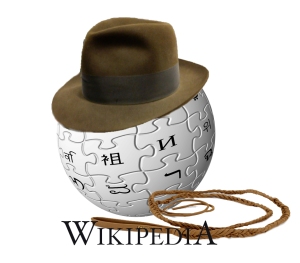 One of the projects we must achieve in Information Management was the creation, or, in my case, the translation of an article of the English Wikipedia to the Basque Wikipedia. Firs of all we were asked to write a draft in Information Management´s webpage, where we basicly translate all the text, without caring about the other Wikipedia´s stuff, like templates. Until the time to transfer it to Wikipedia came, all was fine, but then, we saw ourselves involve in a big adventure: Wikipedia and Wikipedia´s editing world.
One of the projects we must achieve in Information Management was the creation, or, in my case, the translation of an article of the English Wikipedia to the Basque Wikipedia. Firs of all we were asked to write a draft in Information Management´s webpage, where we basicly translate all the text, without caring about the other Wikipedia´s stuff, like templates. Until the time to transfer it to Wikipedia came, all was fine, but then, we saw ourselves involve in a big adventure: Wikipedia and Wikipedia´s editing world.
First of all we started creating an account. Due to the vandalism actions made by some of our classmates, we were not able to sign in with classroom´s computers, so we created it at home. After that, in order to start editing the new post safely, we copied and paste it in the sandbox. It was funny playing with the configuration and the templates, and when a problem appeared, it was really easy to solve it. Using and reading Wikipedia´s help page we learned 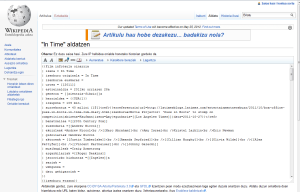 quickly. Read more…
quickly. Read more…
Wikipedia: Comunidad educativa

Wiki es una palabra hawaiana que quiere decir “rápido”; sin embargo, su significado a cambiado gracias al surgimiento de la web 2.0 porque , actualmente, esta palabra se relaciona con páginas electrónicas que se editan en linea a traves de múltiples usuarios. La más famosa es Wikipedia: “wiki” (escrito en comunidad) y “pedia” del griego padeia (educación).
Como usuaria de Wikipedia puedo crear, modificar y borrar el contenido de una página de forma fácil y gratuita, además de ver los cambios realizados instantáneamente en la misma; también, me permite escribir en colaboración a través de la Web y recuperar fácilmente cualquier información anterior o posterior a mi colaboración. Read more…
Community of Communities
This semester one of the activities was to publish an article in Wikipedia. At first, our group didn’t know if to create a new article or to translate an article done before to basque. After thinking for some days, we decided that we will translate a english article into basque, but the next deal was to choose which article to translate. We think about bach, Grace Codington, Anna Wintour and so on, but finally we everyone agree on writing about Nora Roberts, an American writer, who has had lot of succes as a romantic writer all over the world.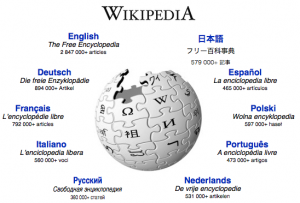
We took a long time translating the article because it was quite long, but at the same time I think that it was a good chance to improve our skills on translation, mainly because it is something that we are going to be expected to do when we finish our degree. Apart from this, we were able to know more about Nora Roberts, how her life is, all her succes and how she get to get the fame that she has nowadays.
Editing the article in Wikipedia was a nice experience, we almost know how to do it, becuase we learned it editing our WCPlan, the exercices and so on, but, apart from that, we had the oportunity to learn new things, as for example how to categorize the article, how to create an “infobox”…
The Wikipedia experience
Taking part in Wikipedia has been an unforgettable experience. It is quite an experience to not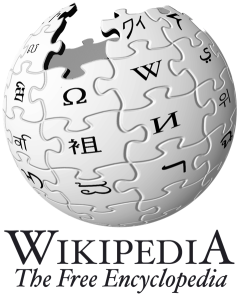 ice that so many people try hard to make Wikipedia a serious and intellectual encyclopedia. If something is not written as an encyclopedia, they do state that it should be written in another way, and it is great to see that people care about it. It is interesting to notice that not only one person writes the article, but many people do it at the same time, which is one of the most enrichening elements Wikipedia has.
ice that so many people try hard to make Wikipedia a serious and intellectual encyclopedia. If something is not written as an encyclopedia, they do state that it should be written in another way, and it is great to see that people care about it. It is interesting to notice that not only one person writes the article, but many people do it at the same time, which is one of the most enrichening elements Wikipedia has.
We had our articles’ drafts already planned and written down in our Littera Wiki so we really only had to transfer them into the real Wikipedia. What really amazed me the most is the speed with which people work at Wikipedial. Just a few seconds after having uploaded our version, corrections appeared all over the article by people and even robots. The links were corrected almost intantaneously, as they were external links which were turned into internal ones.
Writing about a writter
 Nora Roberts is a bestselling American author that has fought to erase the women’s stereotypes. She fought against “machismo” or “machoism” through her novels and she took part in this fight in hard times in which being a female writter was absolutely strange. We think that she has been one of the pioneers of the feminist movement against all the odds and this is the main reason for choosing her and her books to write a Wikipedia article in Basque, since Basque people ought to know about her too. Wikipedia has no article about her in this language and we thought it was a great idea to provide this information to other Basque speakers. We have learnt a lot about the writter but also about information management since we have been working in our wiki and in Wikipedia. Between all the knowlegde we gained doing this exercise we could underline the ability to create a common page in a wikipage where we could all contribute, the skill to submit this information to Wikipedia and to provide it to the general public and the collective building of an article with other Wikipedia members. Read more…
Nora Roberts is a bestselling American author that has fought to erase the women’s stereotypes. She fought against “machismo” or “machoism” through her novels and she took part in this fight in hard times in which being a female writter was absolutely strange. We think that she has been one of the pioneers of the feminist movement against all the odds and this is the main reason for choosing her and her books to write a Wikipedia article in Basque, since Basque people ought to know about her too. Wikipedia has no article about her in this language and we thought it was a great idea to provide this information to other Basque speakers. We have learnt a lot about the writter but also about information management since we have been working in our wiki and in Wikipedia. Between all the knowlegde we gained doing this exercise we could underline the ability to create a common page in a wikipage where we could all contribute, the skill to submit this information to Wikipedia and to provide it to the general public and the collective building of an article with other Wikipedia members. Read more…
A Little Bit of Brain on Music
Chinese cinema: “Spring Subway”
The Infomation Management group I am part of is preparing a Wikipedia article that will be focused on the Chinese film Spring Subway from 2002. In order to analyze and understand it, I have selected some reliable sources related to Chinese contemporary cinema.

Firstly, the author of my first source is Jerome Silbergeld, a Professor of Art History at the University of Washington, Seattle, and the author of several books on twentieth-century Chinese painting, Asian art and especially, Chinese cinema. Besides, his work has been cited in at least 11 books, most of them related to Chinese Fine Arts.
Secondly, Paul Clark is a senior Lecturer at the University of Brighten where he teaches in the school of Historical and Critical Studies, and he has written two of the books included in my sources and also some others like The Chinese Cultural Revolution: a history and has cooperated with Bonnie S. McDougall (a professor of Chinese at the University of Edinburgh) in other work about Chinese cinema Film in contemporary China: critical debates, 1979-1989.
Thirdly, Laikwan Pang is an associate professor in the Department of Cultural and Religious Studies at the Chinese University of Hong Kong. His book explores the history, ideology, and aesthetics of China’s left-wing cinema movement and it has been cited in 6 other books according to Google Books.
In fourth place we have George Stephen Semsel, Xihe Chen and Hong Xia. The former is a professor of Film at Ohio University who worked as a Foreign Expert in the Chinese film industry in Beijing; Xihe Chen is a fellow of the China Film Art Research Center and he is completing his Ph.D. at Ohio State University; and the latter, Hong Xia is on the editorial staff of Film Art (Dianying Yishu), a theoretical journal published by the China Film Association.
Finally, as we can see, all authors are scholars or proffesionals whose work is related with Chinese cinema and most of them have collaborated in some other works related to this topic, therefore, there are reliable and relevant sources and their work would help developing my Wikipedia article.
- Silbergeld, J. China into film: frames of reference in contemporary Chinese cinema. Reaktion Books, 1999. BibTeX [silbergeld1999china]
- Clark, P. Chinese cinema: culture and politics since 1949. Cambridge University Press, 1987. BibTeX [clark1987chinese]
- Clark, P. Reinventing China: a generation and its films. The Chinese University Press, 2005. BibTeX [clark2005reinventing]
- Pang, L. Building a new China in cinema: the Chinese left-wing cinema movement, 1932-1937. Rowman \& Littlefield Publishers, 2002. BibTeX [pang2002building]
- Semsel, GS and Chen, X and Xia, H. Film in contemporary China: critical debates, 1979-1989. Praeger, 1993. BibTeX [semsel1993film]
Reference library: BibTeX
USSR vs USA: competition for supremacy in space exploration

During the Cold War John F. Kennedy said “We choose to go to the moon in this decade, not because it is easy, but because it is hard. The competition between the two superpowers was already boiling, the supremacy and reputation were at stake. Arriving to the moon was the hugest challenge that technology had to face in that moment. National budget and all effort was focused on this goal, defeating the enemy was as important as obtaining the recognition as hegemonic power. This scientific battle lasted from 1957 to 1975 and it involved a great economical effort and also human sacrifice. In fact, it is considered the greatest technological investment ever made after the Second World War.
Last year Konstantin Bogdanov published ,in the Russian news agency RIA Novosti, an article about the race of manned trips. The article is an interesting source and above all a truthful report supported by many data about the space race. One of his areas of investigation covers all events related to the space race. He explains the significant progress of spatial technology and he comes to the conclusion that USSR and USA drawed in this intense space race. In order to complete this information, there is an illustrated report about the arrival to the moon that El Mundo newspaper disclosed in its digital edition.

This report shows many features about this historic event such as the trip of Neil Amstrong, Buzz Aldrin and Michael Collins, the mission, the biography of the twelve astronauts that landed on the moon and what the consequences of this success produced. In addition, the report in order to viewers understand and figure the event out better encloses a documentary with real images of the arrival on our satellite.
Besides, it is important to manage information about Apollo program with which Americans arrived to the moon. That is the reason why the work includes this information retrieved from NASA, the greatest spatial authority in the world. From this American point of view, it is possible to explain how important the success was for US. As Neil Amstrong said, this giant step for the mankind. Yes, it actually was the victory of American nation and its people. But behind every success, there are loads of failures and the report about Apollo program shows many flops, for example Apolo 1 explosion and the death of the astronauts.
To sum up, this wikipedia article about the space race in basque expects to collect different points of view. Firstly, the article of Bodganov provides the Soviet view about the issue. Then, it is important to use information done by any other neutral country like Spain, Therefore, the report of El Mundo is a quite useful source. Finally, NASA is going to explain the events from American point of view. In this way, the project is going to be focused on many perspectives instead of sticking to unique point of view.
References:
– El Mundo digital: 2009 July, 40 años en la Luna, 2009 retrieved 28/2/2012. www.elmundo.es/especiales/2009/07/ciencia/llegada_hombre_lun…
– NASA: Apollo program, humankind’s first step on the lunar surface, retrieved 27/2/02 http://www.nasa.gov/mission_pages/apollo/index.html
Snodgrass’ book as a reference for our Wikipedia article
 Between all the references in Google Books linked to the writer Nora Roberts we can find a book written by Mary Ellen Snodgrass that is absolutely useful for our Wikipedia article since it analyses Nora Roberts’ style and the symbolism of her writing. Snodgrass provides a plot of summaries of Nora Roberts’ work and tells us about the striking features of her two hundred publications, including regular reissues and editions. This is the main reason for considering this reference critical for a Wikipedia article about the writer. Snodgrass also tells us about the writer’s life, her work during three decades (the 80s, 90s and 21st century) and the style in which she describes the genre in her books. Moreover, she provides a complete analysis of the relation of the writer with the mass media and the Internet from the page 105 to the page 128 and this is interesting to know her web communication tools and the way she manages information. Apart from this, the book provides different references at the end of its chapter so that the information there is reliable and it is very actual because it was written in 2010. Read more…
Between all the references in Google Books linked to the writer Nora Roberts we can find a book written by Mary Ellen Snodgrass that is absolutely useful for our Wikipedia article since it analyses Nora Roberts’ style and the symbolism of her writing. Snodgrass provides a plot of summaries of Nora Roberts’ work and tells us about the striking features of her two hundred publications, including regular reissues and editions. This is the main reason for considering this reference critical for a Wikipedia article about the writer. Snodgrass also tells us about the writer’s life, her work during three decades (the 80s, 90s and 21st century) and the style in which she describes the genre in her books. Moreover, she provides a complete analysis of the relation of the writer with the mass media and the Internet from the page 105 to the page 128 and this is interesting to know her web communication tools and the way she manages information. Apart from this, the book provides different references at the end of its chapter so that the information there is reliable and it is very actual because it was written in 2010. Read more…
The Internet: advantage or disadvantage?

The Internet was an strange fact when it started in the 1960s. But it is difficult to imagine the 21st century without Internet. But I think to myself: is the Internet so important for our everyday’s life? Is it an advantage or a disadvantage ? Which is the impact it has on us? Read more…